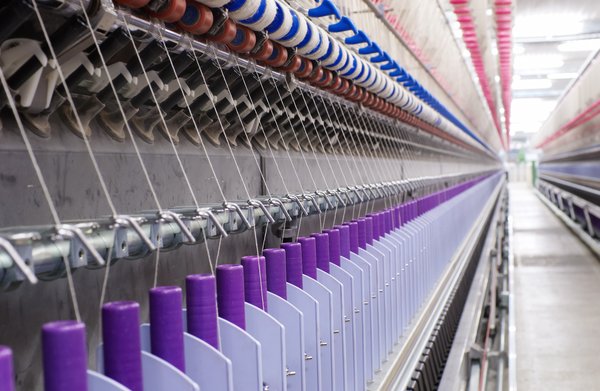E-commerce has reshaped the retail landscape, and the mattress industry has been hit especially hard. Former top retailer Mattress Firm, acquired by scandal-ridden Steinhoff International (OTC:STHHF) in 2016 for a premium price of $3.8 billion, has tucked in hundreds of stores for a permanent goodnight ever since. The decline has paved the way for a new breed of direct-to-consumer, bed-in-a-box manufacturers, several of which have made their publicly traded debut in recent years.
With online shopping and demand for upgraded sleeping comfort on the rise, a select few mattress stocks might be a worthy investment right now.

Top Mattress stocks to consider in 2024
The mattress industry falls into the consumer discretionary sector of the stock market -- meaning it's prone to business cycles based on consumer spending on items not considered everyday basic staples. There are multiple ways to get investment exposure to the mattress industry. For example, investing in consumer discretionary retailers such as Wayfair (W -0.02%) or meme stock Bed Bath & Beyond (NASDAQ:BBBY) yield some exposure to bedding sales.
For a more focused investment in mattresses, check out these four stocks:
| Company | Market Capitalization | Description |
|---|---|---|
| Purple Innovation (NASDAQ:PRPL) | $521.8 million | Direct-to-consumer mattress and pillow manufacturer that went public in 2021. |
| Sleep Number (NASDAQ:SNBR) | $721.1 million | Manufacturer of adjustable beds and sleep systems. |
| Leggett & Platt (NYSE:LEG) | $4.6 billion | Components manufacturer for mattresses, furniture, and specialty seating. |
| Tempur Sealy International (NYSE:TPX) | $6.6 billion | Bedding maker formed via the merger of Tempur-Pedic and Sealy in 2012. |
1. Purple Innovation
Like Casper, Purple is another e-commerce native mattress company that started out with a direct-to-consumer model. It went public via SPAC in 2017 and enjoyed robust sales growth until the pandemic interrupted its sweet dreams in early 2020. Sales spiked later that year fueled by consumer spending during pandemic lockdowns, but the growth momentum stalled out in 2021.
In terms of annual sales, Purple is larger than Casper. Yet it, too, operates at a loss, and the recent stalling out of its expansion (which, in recent years, has also included reliance on traditional retailers) has fueled investor skepticism. Managing its cash balance will be imperative for Purple (as it is for Casper) until it turns profitable. But, after cratering in 2021, Purple stock is also worth a look for investors seeking a riskier bet -- if the company can return to growth in 2022.
2. Sleep Number
Sleep Number is a well-established player in the mattress industry. Its long-running TV commercials have been touting the benefits of its adjustable sleep systems for years, and the company has a longtime presence in both retail stores and online.
Like its younger competition, Sleep Number is a growth story. In fact, it’s been steadily increasing its revenue for years, and it’s also profitable. The stock trades for a value, though, reflecting the crowded mattress industry Sleep Number operates in and the volatile nature of consumer spending on higher-end discretionary items.
3. Leggett & Platt
Leggett & Platt isn’t a mattress and bedding manufacturer but designs components used in bedding, furniture, and other specialty seating (for example, for the auto industry). Manufacturing everything from springs to foam, Leggett & Platt plays an integral role in helping us get a good night’s sleep.
This is no high-growth firm, and, as an industrial products producer, its commoditized manufacturing business generates low single-digit profit margins. Nevertheless, if you’re looking for a dividend income-generating mattress investment that won’t keep you up at night, Leggett & Platt might be the stock for you.
4. Tempur Sealy
Tempur Sealy, one of the major players in the mattress industry, is the product of a 2012 merger between long-time bedding manufacturers Tempur-Pedic and Sealy. The company largely dominates the mattress industry, along with the privately owned Serta Simmons Bedding.
Like the other legacy mattress companies listed here, Tempur Sealy isn’t the fastest-growing business out there -- although the pandemic has sent its sales soaring as consumers upgrade their sleeping comfort. There’s no telling if or how long this boom will last, so its stock would be better suited for value investors. Tempur Sealy also doles out a small quarterly payout, which it initiated in early 2021, and it also repurchases shares.
Related investing topics
Sleep on it before investing
Overall, the mattress industry is not a high-growth space. However, e-commerce has prompted changes in business models and has allowed a number of smaller upstarts to move in on the older firms that have long been hogging the bed. Just bear in mind that, as part of the consumer discretionary sector, mattress stocks can be volatile. Make any investment a very small percentage of your overall portfolio.


























